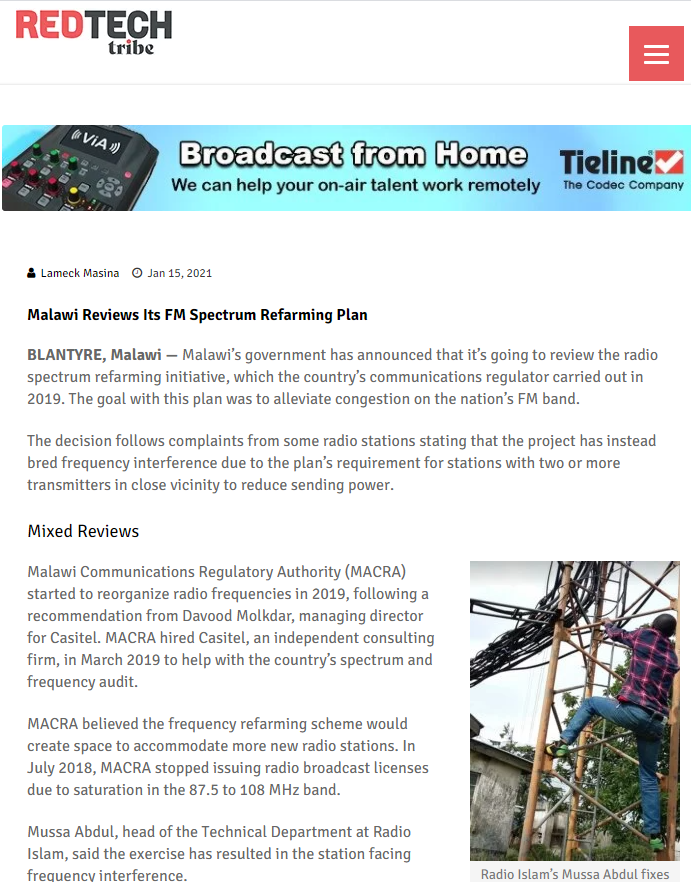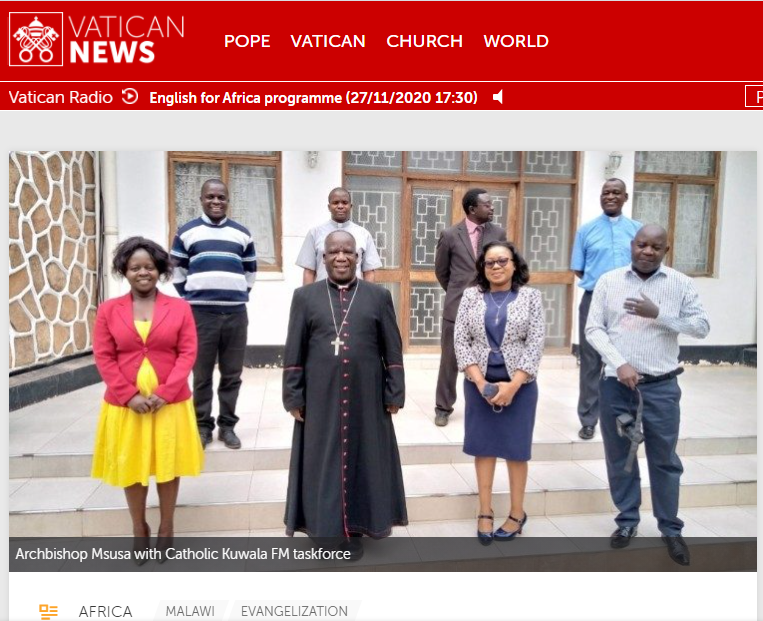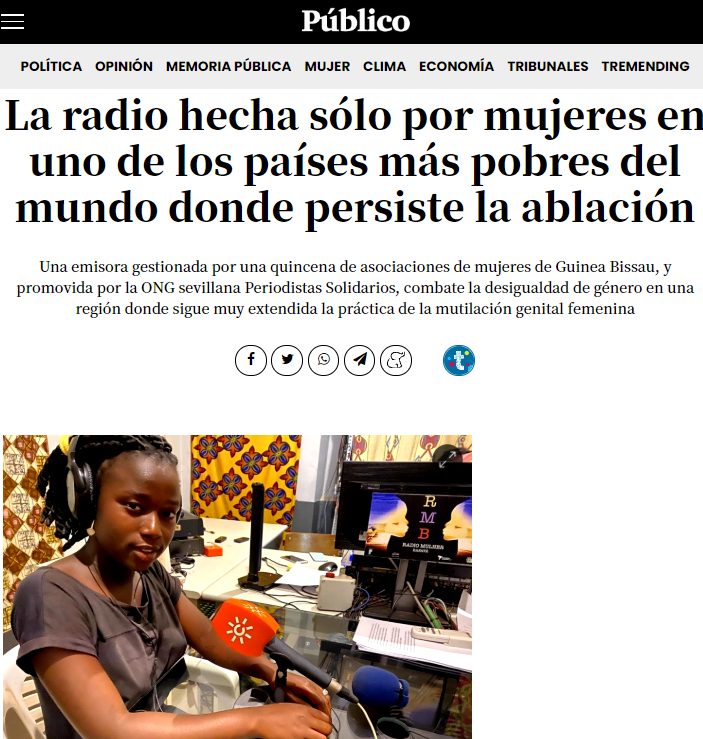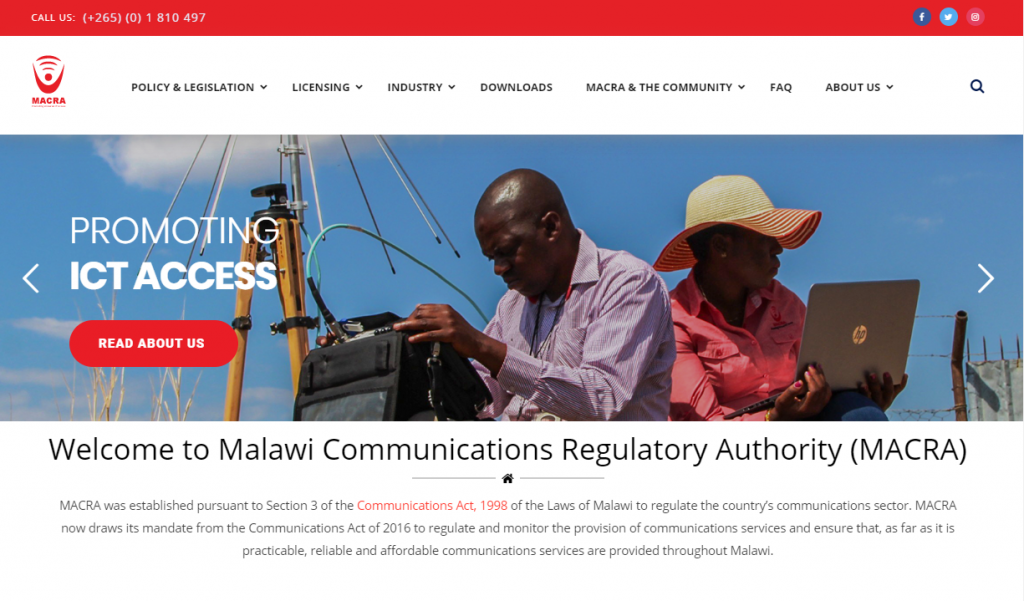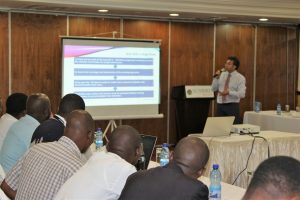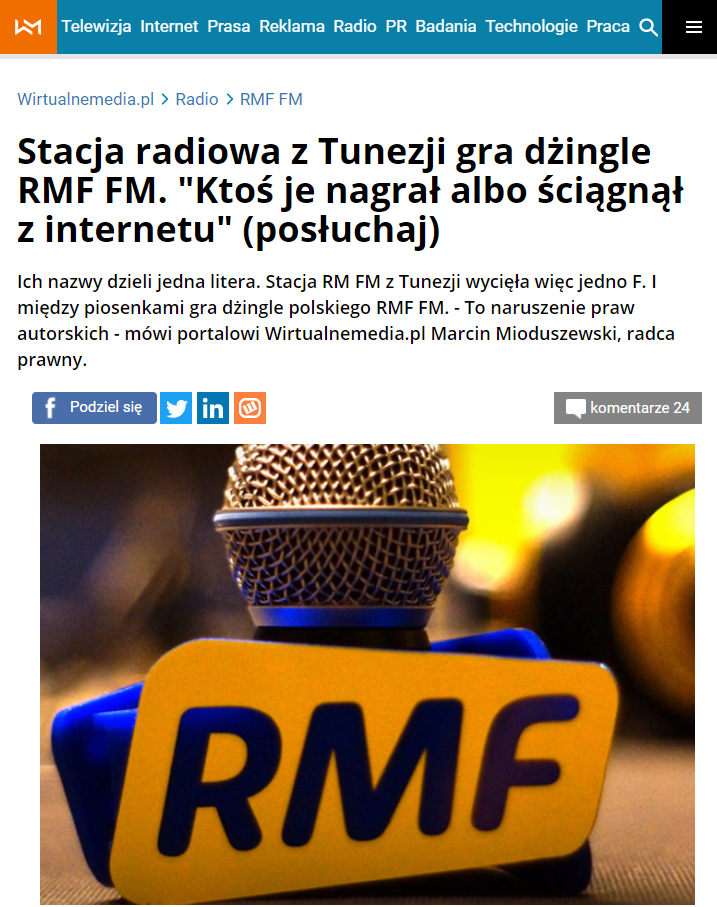
The world of radio has accustomed us to the craziest stories. And this one certainly deserves a prominent place. Accomplice technology and probably… a tourist. Wirtualnemedia, a Polish site specializing in media and broadcasting, has discovered that Tunisian broadcaster RM FM had infringed copyright by using jingles from Polish radio station RMF. And in a very detailed report the site interviews an audio producer who explains technically how the infringement took place: the jingles, perfectly identical in melody and singing, are one second shorter, as the final part of the song has been cut to remove the F of RMF, since the Tunisian station is called RM. You can also see that the sound is compressed, a sign that the jingles were recorded from the net or downloaded from YouTube (where they are available) or from the site of the prestigious American production studio that made them.
A few days after the article RM no longer aired jingles
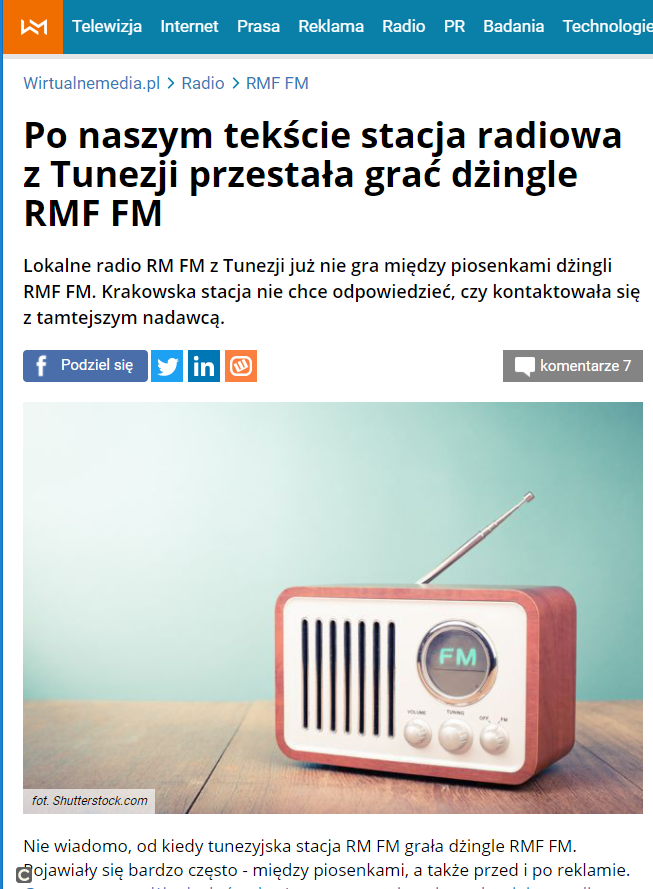
Wirtualnemedia monitoring the audio streamed by RM, and a few days after the article was published, they discovered that the counterfeit jingles were no longer being aired. So it approached the Polish network to see if it had warned the Tunisian station, but the station would not provide details. RMF is Poland’s largest network, with 30.1% of listeners between March and May 2021, according to the Radio Track survey conducted by research institute Kantar.

Source

Source



